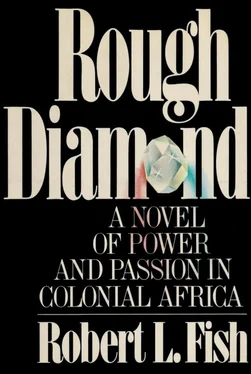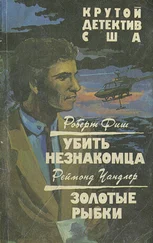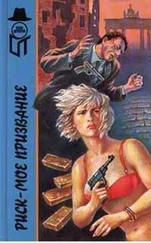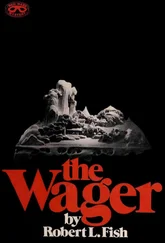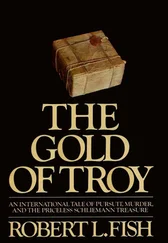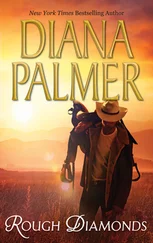Solly stopped short, eyeing his uncle disbelievingly. “Oh, come on! How could you be sure it would work?”
“I wasn’t sure their particular process would work,” Barney said calmly, “but I was sure that one or another, theirs or someone else’s, would work. It had to.” He looked out toward the low hills that surrounded the city, and the growing mountains of yellowish slag that covered a good part of the landscape. “There’s just too much gold out there in the Reef for one process or another not to work.”
Solly said, still almost in a state of shock at the unexpected fortune that had befallen them, “They won’t give us an exclusive on the process, but they’ll set up our plant first and won’t begin any other negotiations until we’re in full production. It’ll be on a royalty basis, but it’s dirt-cheap at the price. We’ll have the edge on every other mining company in the Rand! Our stocks will go right through the roof!”
“I was talking to them when they first came,” Barney said, recalling the incident, “and more out of curiosity than anything else. They said they spent most of their time playing with different metals until they found the best one to bring out the gold from their chemical solution. Which one was it that did the trick?”
“Zinc,” Solly said, and chortled to think of their good luck. Solly Loeb had no idea of what zinc was, other than being a metal that people sometimes used in sheet form for rooftops, but if it wasn’t gold at least it made gold possible, and to Solly Loeb, that was all that mattered.
But Solly’s tone was different when he spoke to Andries Pirow over a drink at the Rand Club. Speaking with Andries was perfectly proper now; Andries was a respected and established rancher, as well as being a member of the Rand Club — one of its very few Boer members, and one whose membership had been demanded and won by Barney Barnato. Andries Pirow was also a member of the Volksraad, the Transvaal Parliament, easily elected from the Johannesburg District by his many friends he had made in his years of hauling into the area. It seemed hard, at times, for Andries to realize the profound change in his life that had come about because of his chance meeting with Barney that day in the Paris Hotel in Kimberley; it was something he often thought about and it was what he was thinking about as Solly went on with his speech. Andries was well aware that to Solly it was still the same as if he were speaking to himself to address Andries.
“Luckiest man in the world, Barney Barnato!” Solly said bitterly, almost as if a good portion of his own fortunes were not intimately bound up with Barney’s. He lifted his drink and sipped gloomily before putting his glass down. “Buys when nobody else is buying, pays prices nobody else would dream of paying, buys things nobody in his right mind would touch with a barge pole, does things that would put any other man in the world in the poorhouse; and then has the incredible, unbelievable, inconceivable fortune to get the first go at the cyanide process for the Rand! If he fell into a cesspool, he’d come out dripping with diamonds!”
“Ummm,” said Andries.
“When they first came into the office, Barney was about to throw them out, but luckily — another example of his incredible luck — I talked him out of it. ‘Give them a chance,’ I told him. ‘After all, they say they’ve installed the process in Australia and America and that it works there. Why shouldn’t it work here? And what’s the point of our having laboratories if we don’t use them?’”
“Ummm.”
“But it’s not as if I envy Barney, or that I’m jealous of him, or anything like that, I want you to understand,” Solly said loftily. “Don’t think that for a moment. After all, we’re relations, and I owe everything I’ve got to Barney. Just as he owes a lot of what he’s got to me. And besides, I own a fair bit of Barnato Investment Company stock myself.”
“Ummm.”
“But still, you can’t deny that he’s luckier than a man with the only beer license for the entire Karroo. Lucky, that’s the only word for Barney Barnato,” Solly said glumly, repeating himself.
“Ummm,” said Andries.
Stephanus Johannes Paulus Kruger, President of the Transvaal Republic and known to both friend and enemy as Oom Paul-Uncle Paul — killed his first game when he was seven years old; he was taken by his parents on the Great Trek from the Cape to the interior, then an uncharted wilderness, when he was ten. He killed his first Kaffir at the age of eleven when their wagon train was ambushed on the trail, and slew his first lion when he was fourteen. Now in his sixties, tough as a rhinoceros, mean as a wounded water buffalo, and with a hatred of the British dating from his earliest childhood memories of being uprooted from land in the Cape Colony which had been settled by his ancestors, and with a deep suspicion and almost equal dislike for the native blacks with whom he had fought innumerable battles in the establishment of the Boer Republic in the midst of what had been Matabele territory, Paul Kruger was not a man to compromise.
Now, presiding over a small group of the Volksraad in the living room of his home in Pretoria, he was propped up in a huge chair to accommodate his large body, swathed in blankets and with a cup of hot tea laced with brandy at his elbow. His wife, hoping to manage a word that might get her stubborn husband to return to his four-poster and combat his cold sensibly — a cause she knew before she started was hopeless — finally sighed at the definite look of dismissal in his eyes, and picking up a full ashtray as if to prove her entrance had been with purpose, retired to the kitchen. Kruger returned his attention to the meeting. It was far from even being a quorum of the membership; it contained only a few of the cabinet, but it was all the important members Paul Kruger had been able to reach by messenger upon hearing news he considered warranted such a meeting.
“You say it’s a new process?” He was addressing a member of the Raad named Kaspar Enslin; as a graduate of the Cape University, Enslin was the most educated and was therefore considered an expert on anything beyond the experience of the others in the room. He also made his home in the city of Johannesburg and was therefore also considered an expert on anything pertaining to that city. It was not a position Enslin enjoyed; basically he was a most modest person, and knew that he was wrong as often as he was right.
“Yes,” Enslin said. “It seems to promise the total recovery of the gold from the rock.” They spoke Afrikaans. Although most of them could manage well enough in English, the use of the hated language was almost forbidden in the Kruger presence.
“What chemical is it?” This was from Frans Scholtz, and was said most eagerly. Scholtz was a major trader and held the concession for the importation of all dynamite into the Transvaal, dynamite essential to the very existence of the mines. It was claimed that if one placed a shilling under a rock in the Simmer & Jack mine, and put Scholtz in the Robinson mine, miles away, he could tell by merely smelling which side of the shilling showed the old Queen. Kruger raised a hand, cutting off this portion of the discussion. He knew he would have to return to it, for Scholtz would never allow the matter to be dropped so easily, but Kruger had more important matters than Scholtz’s convenience or profits on his mind in calling the meeting.
“Later!” Kruger said in a tone that ended, or at least postponed, the matter, and fell silent, thinking. The others in the large room waited. There were eight men present in addition to the President, the only ones Kruger had been able to reach with the little notice he had upon hearing what to him had been dread news. He looked around, his small, beady eyes passing from man to man, from face to face, assessing them from beneath his bushy graying eyebrows. At last he spoke. “You all realize what this will mean?”
Читать дальше
